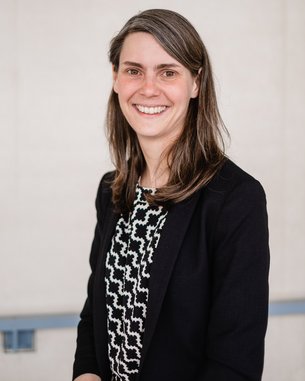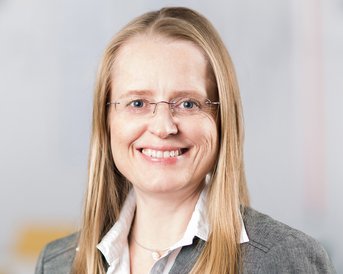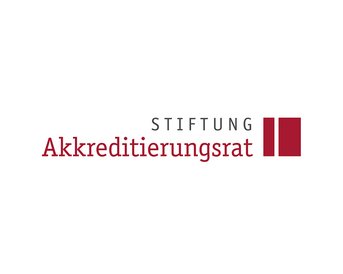
Are you passionate about working with children, supporting them holistically in their development and education at an early stage, while taking an inclusive approach? We share your passion! To us, that means: passion for life.
Are you passionate about working with children, supporting them holistically in their development and education at an early stage, while taking an inclusive approach? We share your passion! To us, that means: passion for life.

We know that childhood education has a particularly high social status. And rightly so! For children to grow up healthy and safe, they need support in their development from the very beginning and parents need advice, too.
The focus of our bachelor’s program is on the development and support of the child as an infant, toddler and in childhood up to the age of 12.
We teach you not to consider each child as a unique individual with all strengths and competencies and not according to what he or she cannot do. We show you the role of prevention, resource orientation and intensive support as well as the importance of inclusion. The central foundations of this course of study lie in its support and promotion of children's educational, learning, developmental and socialization processes based on relationship-oriented and inclusive work, as well as cooperation with the whole family.
We prepare you comprehensively in the field of childhood education, focusing on inclusivity. You will gain an in-depth examination into different developmental processes, different forms of disabilities, developmental disorders, and delays, as well as behavioral problems. In addition, we will provide you with varied inclusive pedagogical concepts to accompany the children according to their complex needs and to support their families effectively.
In a practical way, we teach you relevant inclusive pedagogical, psychological, and medical-therapeutic knowledge and skills to accompany and support families and their children regardless of whether the child has disabilities or developmental disorders in childhood or not. You will acquire carefully compiled professional, methodological, social, and personal skills to ensure a high level of professionalism in your work.
If you want to strengthen others, you should know yourself well. Therefore, you will learn to reflect on yourself and your work and to adopt a professional attitude in the inclusive childhood education setting.
During the internships integrated into the program, you will also gain comprehensive insights into the professional activities of childhood educators and build up a network with different fields of education and support, as well as test your practical knowledge and the competencies acquired during your studies.
During the internships integrated into the program, you will also gain comprehensive insights into the professional activities of childhood educators. During this time, you will already build up a network with different fields of education and support and can test your knowledge for practical suitability as well as apply the competencies acquired during your studies directly in practice.
After completing your studies, a wide variety of career opportunities are open to you.
In addition, the degree offers you the opportunity to complete a master's program. This ultimately opens the possibility of a doctorate and an academic career. At our university, you can continue with the master's program in "Health and Social Management" and get started.

You can study this degree program with us if you are beginning your professional career or have relevant professional experience. Having completed vocational training in a related field (e.g., educator), you can shorten your studies at our university to 2 years (4 semesters) after passing the placement exam. Due to our attractive attendance time of 6 blocks per semester, or 4-5 attendance days per month starting from the 3rd semester on, you can even remain active in practice. Alternatively, if you are at the very beginning of your professional training, you can join the program in the first semester.

With us, you will follow the full-time study model but from the 3rd semester will be studying in a block structure. This means that the attendance time at our university is compressed, allowing you to be simultaneously active in your professional activities.
The first two semesters of your studies take place during the week. From the 3rd semester onwards, the practice-integrated study model comprises 6 blocks per semester, meaning that you will attend 4 to 5 attendance days per month. This allows you to combine your attendance time with your professional activity and your private requirements, as well as apply your newly acquired knowledge in a practical way.
The integrated internship, allows you to gain valuable insights into the professional activities of a "high professional" as part of a multi-professional team in fields such as prevention, counseling, diagnostics and therapy. Before, during and after the internship, you will also receive continuous practical support from lecturers at our university.
You can shorten your studies to 2 years / 4 semesters if you already have relevant work experience in this field. You will then enter directly into the 3rd semester. We would be happy to check at any time if this possibility applies to you based on your application documents. Please do not hesitate to contact us.
Pedagogical basics
5Legal basis and institutional framework
5Pedagogical concepts and approaches
5The family
5Psychological basics
5Game
5Basics in the educational areas
10Methodical action in the educational areas
10Observation and documentation of educational processes
4Planning and design of educational processes
4Accompanying internship
2Scientific work I
6Families in heterogeneous environments
10The child's welfare
3Social Medicine
5Consulting and conversation
6Specific forms of disability
5Clinical developmental psychology
5Inclusive pedagogy
5Project and project management
5Interdisciplinary early intervention
10Block internship / internship supervision
30Scientific work II
4Economic foundations of the social economy and social policy
4Leadership
4Quality and process management
5Interdisciplinary cooperation and networking
3Bachelor thesis and colloquium
10We'll answer any questions you have about your studies in Inclusive Childhood Education (ages 0-12).
A special feature of our Bachelor's program "Inclusive Childhood Education (0-12 years)" is that our students switch to a block structure in the 3rd semester. Your first two semesters are filled with 20 teaching units (UE) consisting of face-to-face classes and guided self-study assignments. In addition, you should plan time for preparation and follow-up of the courses and, of course, for studying for the exams. However, there is enough time for private activities and of course semester breaks.
In the 2nd and 3rd year of study, our Bachelor's program "Inclusive Childhood Education (0-12 years)" is offered in a block structure to accompany the profession.
There is no general answer to this question because individual situations can vary greatly. In addition to personal factors such as an ability to learn quickly and good organizational skills, you also must consider, for example, whether you have a long commute to the university and what requirements the job entails. Are overtime and sudden stand-ins for colleagues to be expected? How many tasks do you have that you can't delegate?
A full-time position is not recommended.
Between the attendance blocks you will work on self-study tasks guided by the lecturer. This time between the blocks also includes the preparation of your own contributions (e.g., short presentations), the completion of practical work and project work, and the preparation or completion of examinations (e.g., a student research project). Finally, each module also provides for self-study time. During this time, you can deepen your knowledge according to your own interests.
The block structure allows you to pursue a professional activity alongside your studies. However, it is not a must. Many of our students work in a childhood education institution while studying. Others have part-time jobs in other fields.
If you work as an educator in a childcare facility, the answer is: "In principle, yes". However, the tasks and activities planned for the internship must correspond to the module requirements and be clearly distinguishable from the tasks to be performed within the framework of the existing employment relationship. Guidance by an academic specialist must also be ensured.
Our Bachelor's program "Inclusive Childhood Education (0-12 years)" is a childhood education program with a focus on inclusive education and early intervention. Upon successful completion of your studies, you will receive state recognition as a childhood educator, not state recognition as a special educator.

"In decisions that may affect children, the best interests of the child should be paramount. However, this cannot be thought of separately from the well-being of those who accompany the child in his or her development on a daily basis in the family and non-family space."
Prof. Dr. Anne Henning, Director of Studies

As a joint institution of the federal states, the Accreditation Council Foundation is responsible for quality assurance in teaching and learning at German universities.
The Foundation Accreditation Council has given the study quality award to our bachelor's program Inclusive Childhood Education.
This is how easy it is to start your dream studies with us!
To ensure a smooth and stress-free start to your dream studies, we recommend that you apply online by March 10 for the upcoming summer semester and September 10 for the winter semester.
Here you will find all the information you need to realize your studies.
As a state-recognized, private university, the SRH Hochschule für Gesundheit is financed by tuition fees. These revenues are used to equip our campus, to provide services for our students, and to ensure that you receive the highest quality of education, creating an optimal study environment.
Tuition fees
The monthly fee remains the same throughout the entire period of study. The one-time enrollment fee is 450.00 EUR and is due 4 weeks before the start of your studies. Except for the placement, aptitude or equivalency exam, if applicable, no separate exam fees or similar are charged, not even for repeat exams. This gives you maximum cost transparency during your studies. If you extend your studies beyond the standard period of study, fees will also be charged, as the university's offer will continue to be used. If only the final thesis of the course is still outstanding, the fees are reduced by 50%.
In addition to efficient organization, a goal-oriented course of study requires a solid financial basis to be able to pay rent, living expenses and tuition fees. Financing options are available, including educational loans, BAföG or scholarship programs.
We have compiled a list of all financing options for you here.